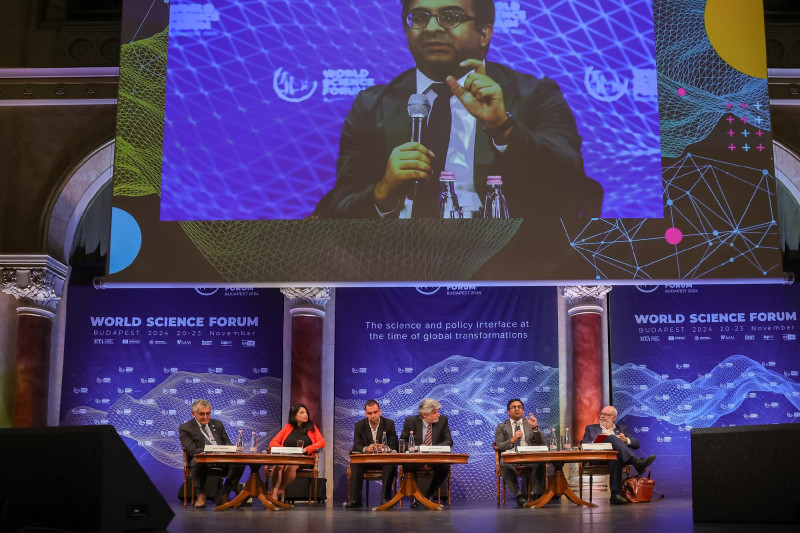Science Policy Through the Lens of Policymakers: Investments in Science Create Ripple Effects Across Society, the Economy and Governance
A dynamic roundtable discussion at the World Science Forum explored science policy through the lens of policymakers, emphasising how investments in science create ripple effects across society, the economy and governance. Esteemed speakers of the Ministerial Roundtable II titled “Policy for Science: Balancing Risk and Reward” addressed the critical role of evidence-based policies and the challenges of translating research into real-world impact.

Peter Gluckman, President of the International Science Council, opened the discussion by underscoring that science policy extends beyond funding decisions. Governments, he noted, invest in research not only to generate new knowledge but also to drive economic growth, inform policymaking and ensure the well-being of their citizens.
Asad Ramzanali, Special Assistant to the President and Chief of Staff at the White House Office of Science and Technology Policy, highlighted that research and development (R&D) funding demonstrates a nation’s commitment to its future. He pointed to long-term innovations such as mRNA vaccine development as examples of science investments yielding transformative societal benefits.
Daniel Filmus, Director of the Ibero-American Center for Research in Science, Technology, and Innovation, addressed the unique challenges faced by lower-middle-income countries. He emphasised that while urgent issues demand immediate funding, long-term research is essential to breaking the cycles of poverty. Filmus called for international cooperation to solve humanity’s global challenges.
Vahan Agopyan, State Secretary of São Paulo, Brazil, stressed that innovation transcends economic gains—it is about delivering research results to society. He advocated for granting research institutions greater autonomy, ensuring transparency in funding and fostering proactive engagement between researchers and policymakers.
Clarissa Rios Rojas, Political Affairs Officer at the United Nations Office for Disarmament Affairs, discussed policies surrounding existential risks like bioweapons. She highlighted the need to modernise outdated international conventions to address today’s technological advancements effectively.
The roundtable concluded with a compelling argument for global investments in science, even in lower-income countries. Panellists emphasised that these nations have the talent and capacity to tackle unique challenges that remain unaddressed elsewhere, further underscoring the importance of international collaboration for scientific progress.